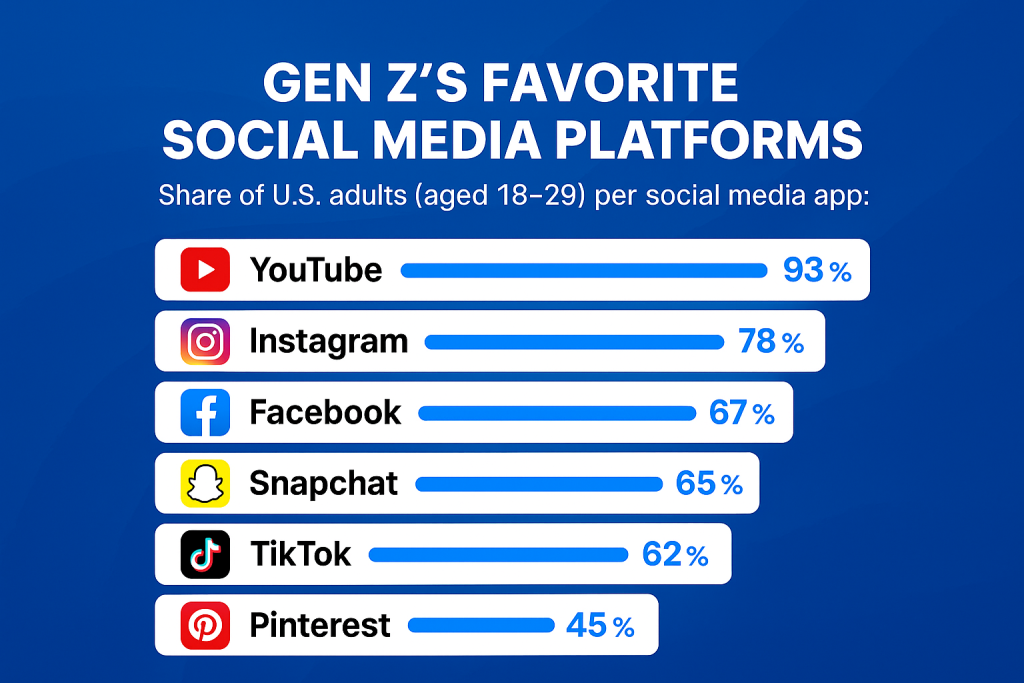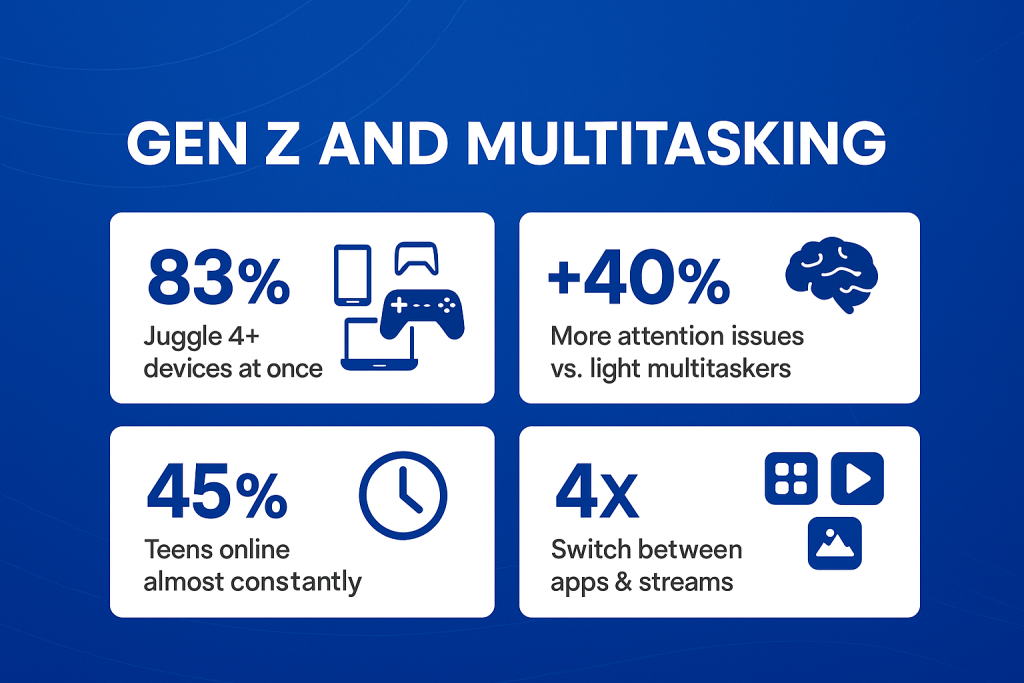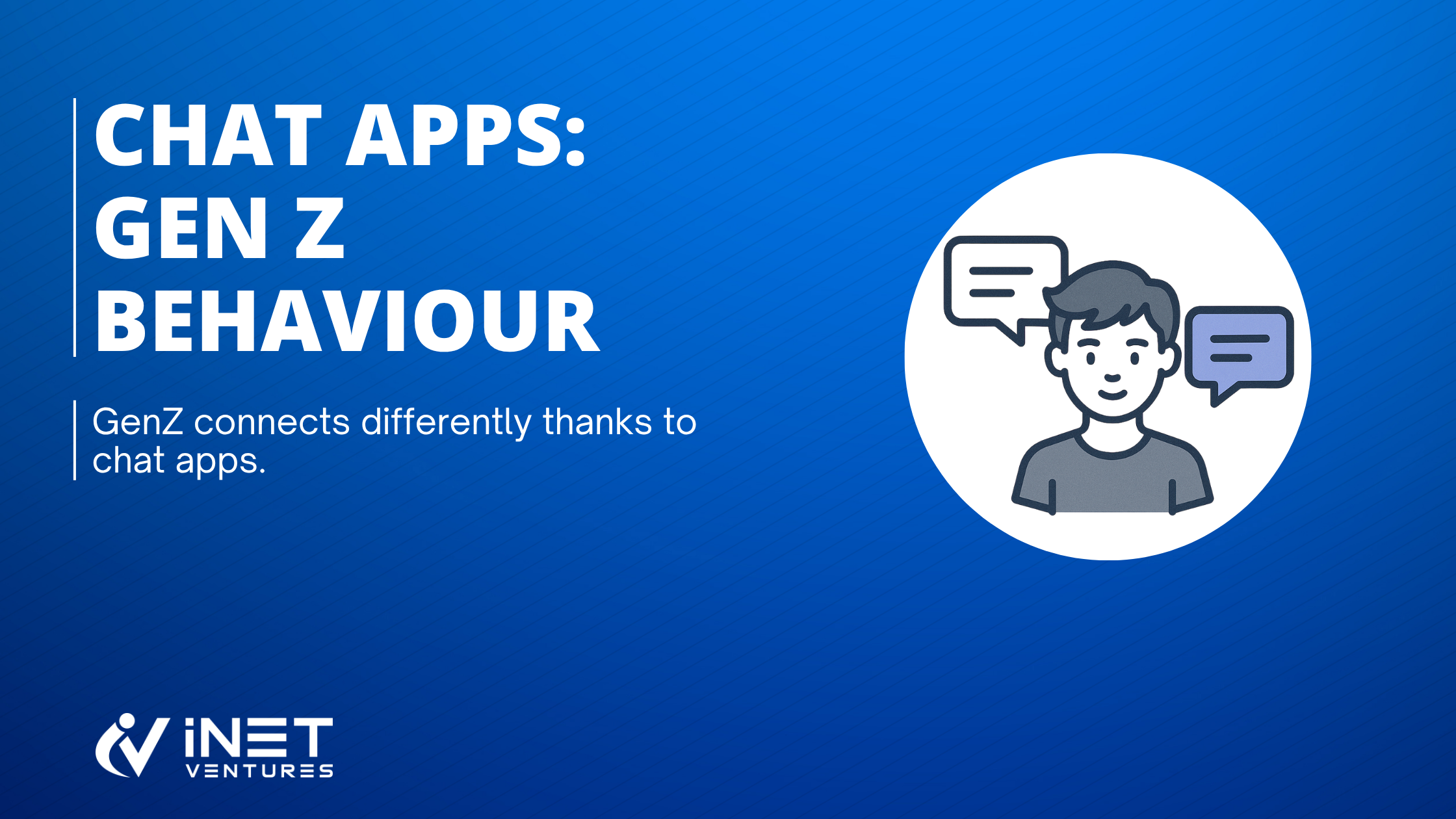It’s no exaggeration to say that the proliferation of social media, chat apps, and other new social tech have completely changed the landscape of how the younger generations communicate.
Gen Z, which can roughly be defined as those born between around 1997 and 2012, isn’t the youngest generation; that honour goes to Gen Alpha, the oldest of whom are just starting to enter adolescence.
Still, Gen Alpha is a touch too young for us to understand how their behaviour is being shaped by the tech landscape. Gen Z, on the other hand, is perfect for that kind of analysis.
So, how are chat apps and other social media tech reshaping Gen Z social behaviour? Read on to find out!
What kind of chat apps do we mean?
First, it’s handy to define what kind of chat apps we mean.
There are plenty of different chat apps available out there for Gen Z kids and young adults to use. Some of the most popular include the likes of Instagram, TikTok, and, surprisingly enough, YouTube.
Those are mainstream social media platforms, but there are also apps like Monkey that allow Gen Z users to find random new friends and talk to one another without pre-existing relationships.
When we talk about chat apps, we’re referring to any platform on which Gen Z users can talk to one another online rather than in person. That could be via text, voice notes, or any other means of communication.
With that established, let’s talk about what chat apps are doing – and could be doing – to Gen Z behaviour.

Chat apps can struggle to keep Gen Z safe online
Perhaps one of the most worrying ways in which chat apps are reshaping Gen Z social behaviour pertains to online safety.
As the NSPCC says, kids can use chat apps to talk to people they don’t know online, which could mean getting into a situation that threatens their safety or security.
Monkey is a particular area of concern for many parents in this regard, which has led them and their friends to seek a Monkey app alternative, such as Emerald Chat, that prioritizes safety over the unpredictable nature of random video chat platforms like Omegle.
It’s not just random chat apps, either. Many of the major social media platforms have come under scrutiny for the ways in which they fail to keep their users safe.
McMillen Health identifies issues like cyberbullying as being linked to the social media experience, so if, for example, you’re a parent of a Gen Z kid, it’s important to make sure you’re monitoring their social media use.
Gen Z kids aren’t just talking through apps
Social media and chat apps are just two facets of the Gen Z online experience.
The term “chat app” is a little fluid nowadays; while it can certainly refer to the aforementioned apps, it can also point to other online experiences in which Gen Z kids like to interact.
Since its early days, for instance, Epic’s wildly popular battle royale video game Fortnite has served as a hangout space for younger players, with many choosing to meet up in the virtual spaces of Fortnite rather than in real life.
Similarly, games like Minecraft and Roblox (although the latter is a content generation platform rather than an out-and-out game) can act as gathering platforms for Gen Z kids.
From a marketing perspective, that means creating a Fortnite island or a Roblox experience can be a great way to connect with Gen Z users.
Of course, Gen Z is also a cynical generation, so it’s important not to come across too corporate or desperate when doing this.
Multitasking is key to the Gen Z experience
Studies have shown that Gen Z is a generation of multitaskers. In fact, research has demonstrated that up to 83% of Gen Z screen users will be using multiple screens at one time.
This means that not only will Gen Z kids be talking on WhatsApp or Instagram, but they’ll also be watching a movie or a TV show (at double speed, obviously) or playing a video game.
That kind of multitasking will probably sound impossible to you if you’re a millennial (although many of us also listen to podcasts or watch background entertainment while doing something else), but it’s how Gen Z lives its life.
The widespread ubiquity of information – and places to consume that information – has led to an age in which constantly consuming information is the only way Gen Z can keep up with the dizzying pace of life.

Are chat apps making Gen Z more impersonal?
Among many millennials and older generations, there’s often a sense that Gen Z’s reliance on social media and chat apps could be making the generation more impersonal.
It certainly seems to be the case that loneliness is endemic among Gen Z chat app and social media users; recall the phenomenon in which Gen Z Facebook users posted friendship applications to ask other users to be their friends.
However, there’s also a growing resistance to the overreliance on app culture among Gen Z users. Dating apps, for instance, aren’t as popular with Gen Z users as they are with millennials, although there could be a number of reasons for this.
Unfortunately, though, there is evidence to suggest that chat apps might be making Gen Z feel more disconnected from their fellow humans.
Studies have shown that social media is associated with increased anxiety and depression risk among younger users, which doesn’t necessarily imply causation, but there’s certainly a link.
Chat apps and social media promote quick, shallow interactions rather than deep and lengthy conversations, and the emphasis on speed and efficiency brought about by platforms like TikTok could arguably exacerbate this issue.
| Platform | Ages 18-29 | 30-49 | 50-64 | 65+ |
|---|---|---|---|---|
| 67 | 78 | 70 | 59 | |
| 78 | 66 | 36 | 19 | |
| 40 | 41 | 30 | 15 | |
| X | 38 | 25 | 15 | 8 |
| 45 | 43 | 33 | 22 | |
| Snapchat | 65 | 32 | 14 | 4 |
| YouTube | 93 | 94 | 86 | 65 |
| 30 | 40 | 28 | 18 | |
| 46 | 35 | 11 | 4 | |
| TikTok | 62 | 40 | 26 | 10 |
| BeReal | 10 | 2 | 1 | <1 |
Source: Survey of U.S. adults conducted Feb. 1-June 10, 2024.
Conclusion
It’s hard to say whether chat apps are having a positive or negative impact on the behaviour of Gen Z online, but it’s pretty much impossible to say they’re not shaping the generation’s behaviour in some way.
As time goes on, we’ll have a better idea of just what chat apps could be doing to Gen Z; after all, it’s still a young generation, and it’s hard to know what long-term impact some of this (still very new!) technology could be having.

Sarang Bhargava is an avid technology enthusiast and content creator with over half a decade of experience. As a part of Systweak Software, he specializes in writing about software, apps, and cybersecurity-related topics. His passion for writing stems from experimenting with various apps and software-spanning devices and operating systems. He also loves to stay updated with the latest trends and innovations in technology. When not writing, you can either find him dozing off or binging on web series and movies.


